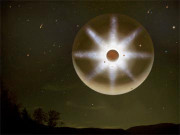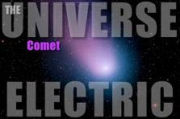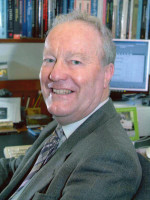|
Inspired by the book: Against the Tide; A Critical Review by Scientists of How Physics and Astronomy Get Done Edited by Martin Lopez Corredoira & Carlos Castro Perelman. (Universal Publishers, Boca Raton, Florida, U.S.A.) There can be little doubt in the minds of those who are involved in attempting to disseminate research results among the entire scientific community that major problems exist. It is well documented that adopting certain stances will result in an inability to publish in the majority of the so-called high impact academic journals. There are also well documented cases of people experiencing grave difficulties in their place of work and even, on some occasions, being driven out. Amazingly, there are even cases of attempts being made – some successful – to deny research students their doctorates because their theses contain material which may cause embarrassment for some person with an inflated sense of his/her own importance. Again, more and more academics, certainly in British universities, are coming under increasing pressure to draw funds into their establishments. Note the emphasis is not on good research, or even just research, but rather on attracting more and more money. Obviously, to achieve this, the person concerned must not give those in authority any reason to dismiss their grant applications out of hand. Hence, they must be careful to offend no-one or, in other words, they must conform. The result is that many carry out straight forward work which is easily published in reputable journals and attracts funding without problem. However, such work is often more development than true research and often does little to advance knowledge. These mediocre individuals play the game to their own advantage though and are regularly being promoted to positions their academic ability and achievement doesn’t warrant. In due course, such people rise to positions of increasing power and authority and the status quo is strengthened further. Conventional wisdom triumphs and the innovative thinker is condemned to work and think alone under the burden of an ever-increasing teaching load. Remember though that as one university official told an academic member of staff, “I don’t pay you to think”! With this attitude, what hope is there unless people read books such as Against the Tide and learn from them? This then is the background to the articles appearing in this book. However, is the situation depicted anything new? Years ago, in a different context, Churchill advised people to learn from the lessons of history and that advice applies equally well to situations in science as elsewhere. Taking this advice to heart, it soon becomes clear that, unfortunately, this situation is not new although it may be more widespread now than in bygone ages. A brief examination of Stephen Brush’s book, The Kind of Motion We Call Heat, reveals the shocking details of the case of J. J. Waterston, whose pioneering paper on the kinetic theory of gases was buried in the archives of the Royal Society until discovered by Lord Raleigh and published at his insistence after the author’s death. Lord Raleigh himself commented that the rejection of this work probably delayed the progress of theoretical physics for up to fifteen years. However, Lord Raleigh went on to say that Waterston’s mistake was in not making a name for himself before embarking on attempting to publish something so novel. This seems a surprising and disturbing comment for many reasons, but doesn’t even apply to some of the contributors to this present book. People such as Wolfgang Kundt, Halton Arp and Tom van Flandern hardly fall into this category, yet each contributes powerful moving pieces; each describes being ostracised by former so-called friends and colleagues after expressing views which did not accord with the commonly accepted view of things. In fact, after reading these three articles alone, one is left with the question ‘What is Science supposed to be about?’ Contemplating the answer is depressing. Here one must draw direct attention also to the rather long indictment of the open electronics archive site now run from Cornell University but initially from the Los Alamos Laboratories. This article is a worrying story and raises a question which, at the very least, is deserving of a public answer and explanation. All the other articles contain further devastating indictments of the current position in physics and astrophysics. Unfortunately, two or three of these articles are written by people whose first language is not English and, in one case, an actual translation is reproduced. These articles are extremely difficult to read since they tend to be long-winded and contain non-standard English which is tiring to follow. In each of these articles, however, there is a wealth of powerful, though worrying, material for those interested in finding out what the true situation in scientific research is. It is a pity that the read is so difficult because what is really required is to convince the person paying the bill for all this research – that is, the ordinary tax payer – that his money is not being spent wisely. Such people will not, in my view, read these articles and may be put off the entire book because of them. There are, in addition, some articles included concerned with ethics. This is a welcome inclusion and such articles are well worth reading but will they be read by the people who should be reading them? By this is meant all those people who have managed to rise to positions of real power and authority in science but who are responsible for the entirely unethical situation now existing in so many areas. It has to be doubted that any such people will even think of perusing the contents of this book. It seems more likely that they will dismiss it – and encourage others to do likewise – as a collection of outpourings of people who hold grudges. It would come as no surprise either to find that such people will ensure, as indeed they can, that the book receives little publicity, is not reviewed in the main scientific journals, and is not carried on the open bookshelves of major book retailers. This, after all, is the position with the book Exploding a Myth; ‘Conventional Wisdom’ or Scientific Truth? [Dr. Jeremy Dunning-Davies] which, in essence, addresses the same topic as that covered by the present book but by looking at specific topics within physics and considering how they have been treated within the scientific community. Against the Tide contains one article, however, which should be printed out and posted on the notice-boards of all researchers and that is the one by Dmitri Rabounski in which he lays out a Declaration of Academic Freedom or, if you prefer, a list of Scientific Human Rights. There are twelve articles and, if adhered to, they would ensure the immediate removal of the vast majority of the cases of scientific injustice. These articles are based on a (naïve?) belief that the leaders of the world’s scientific community and all those working under them are dedicated to the advancement of genuine scientific knowledge. It seems, though, that this may be a forlorn hope with human nature being what it is. However, we may hope that the contents of this book, and others, will help prick the consciences of some in positions of power to do what is right for science and, indeed, for mankind. It must always be remembered that, although this book restricts its attention to situations occurring in physics and astronomy, others areas will be blighted by the same disease. That includes, for example, medicine where the sort of attitude and approach depicted in Against the Tide could result in loss of human life. Scientific truth, that is the actual answer to a scientific problem, is of paramount importance. Personal position and advancement on the back of a scientific untruth should never be tolerated and deliberately covering up inconvenient results by pseudo-scientific argument – such as has happened with at least some of Halton Arp’s work for example – should be treated for what it is and the perpetrators dealt with accordingly by the entire scientific community. Occasionally, blatant examples of scientific fraud become public and are treated with horror by those who read of them – scientists and non-scientific laymen alike. However, is the suppression of scientific results and ideas such as are discussed in the articles included in this book ethically any different? This is a serious question which must be answered individually by each and every scientist. For myself, I see no difference and feel the treatment meted out to such as Halton Arp amounts to nothing less than academic fraud. People must read this book! The task may not be easy but it is vitally important for science and, indeed, for humanity, that the information contained is spread abroad to all corners of the Earth. Let the public which ultimately pays the bill, know all the facts and judge accordingly! Jeremy Dunning-Davies.
|




